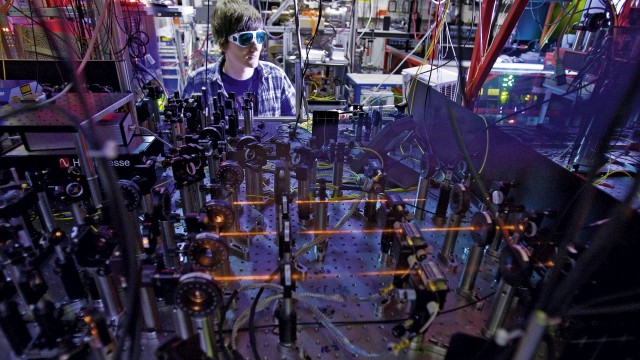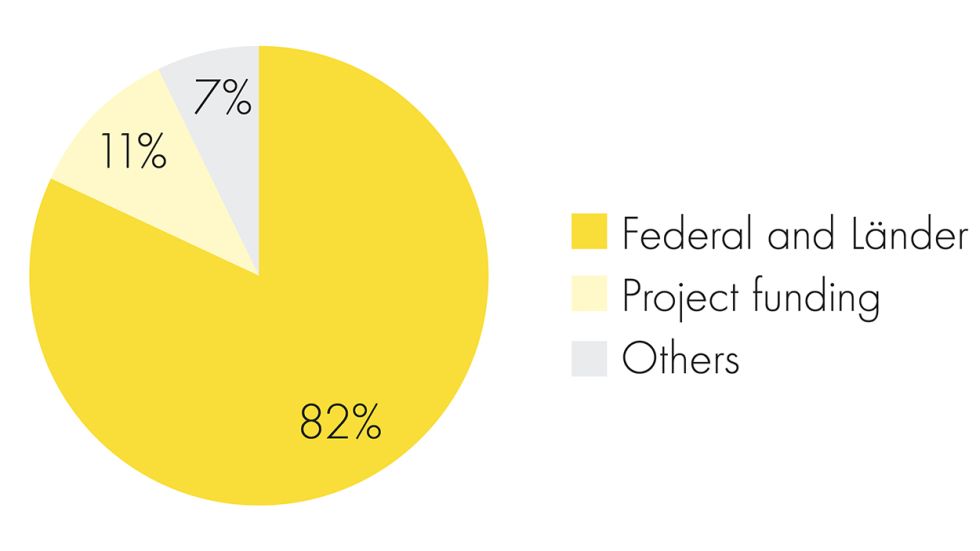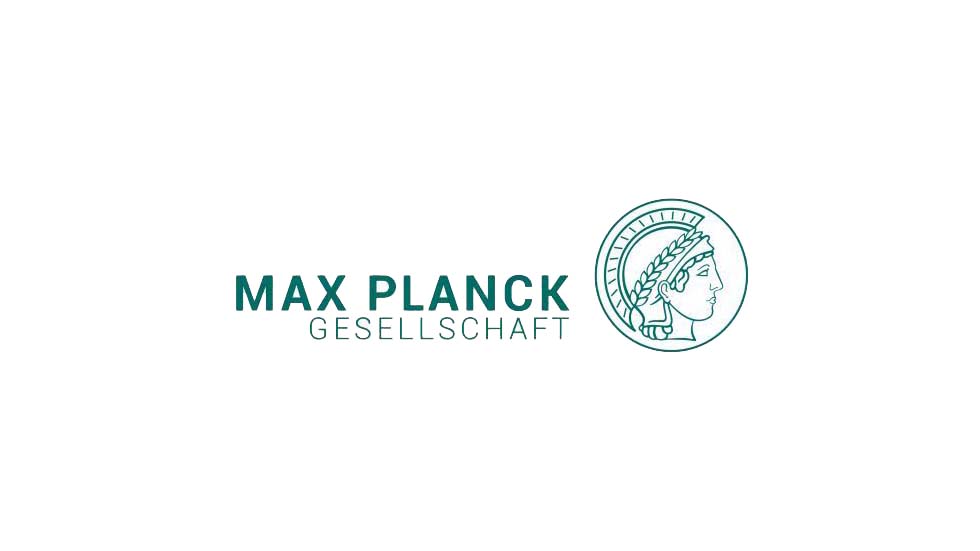Support making RiG more international!
Start SurveySupport making "Research in Germany" more international! Your expertise and commitment are the key to the further development of promoting the German research landscape. We invite you to take part in our online survey and share your valuable experiences and opinions. Duration: 7-10 min.
Please start the survey at the end of your visit.
Max-Planck-Gesellschaft
The Max Planck Society enjoys worldwide recognition for its excellence in research. It has produced 29 Nobel prize winners who were scientific members of the Max Planck Society or its predecessor, the Kaiser Wilhelm Society, in the year in which they received their prize. For example, Emmanuelle Charpentier, scientific and managing director of the Max Planck Unit for the Science of Pathogens in Berlin, received the prestigious award in 2020 in Chemistry. In 2021, two Nobel Prizes went to researchers from the Max Planck Society: Klaus Hasselmann, founding director emeritus of the Max Planck Institute for Meteorology, was awarded the Nobel Prize in Physics, and Benjamin List, director at the Max-Planck-Institut für Kohlenforschung, received the Nobel Prize in Chemistry.
The Max Planck Institutes offer a vibrant, open and international working environment. Not surprisingly, the appeal of the Max Planck Society has spread worldwide. More than half of all the researchers at the Max Planck Society hold a foreign passport, forming a creative cosmos in which interdisciplinary and intercultural concepts and innovative ideas come to bear. This, in turn, ensures the success of the excellent basic research for which the Max Planck Society is renowned.
The Max Planck Society supports outstanding young scientists and researchers, who complete formative years of their careers as student assistants, PhD students, postdocs, or research group leaders at Max Planck Institutes, and who benefit from the knowledge of their internationally networked research mentors.

Organisational details
Almost 24,000 people (researchers, doctoral students, graduates, scholarship holders, visiting researchers and staff) are employed at the Max Planck Society. The Max Planck Society's headquarters are located in Munich.
In all, 86 research institutions belong to the Max Planck Society. They include centres not only in Germany, but also abroad. The institutes have their own budgets and are free to decide on their research projects. Heads of institutes enjoy the best possible working conditions and have complete autonomy in choosing their staff, subject matter and cooperation partners.
Facts and figures
86 research institutes and facilities (five institutes and one research facility outside Germany)
Almost 24,000 employees, including 6,700 researchers, 2,500 visiting researchers and approx. 520 scholarship holders
More than half of the researchers come from outside Germany
Annual budget: approx. 2.3 billion euros (2021)
Research activities
Max Planck Institutes conduct basic research in the interest of the public good. The research fields are:
- Natural sciences
- Life sciences
- Social sciences and the humanities
Some institutes also perform services for university research, providing equipment and facilities to researchers, such as telescopes, large-scale equipment, specialised libraries and documentary resources.
International cooperation
Max Planck Institutes frequently build international networks to create the critical mass for specific research topics. Max Planck researchers are highly sought-after and appreciated as esteemed research partners worldwide. This is evidenced by the fact that around 15,700 junior and visiting researchers worked at the Max Planck Society on fixed-term contracts of varying lengths during the course of 2021. Additionally, Max Planck Institutes were involved in roughly 3,000 international research projects with more than 6,000 partners in over 120 countries around the world.
As a research partner, the Max Planck Society collaborates with numerous institutes and multinational research facilities outside Germany.
Budget
The budget amounts to approx. 2.3 billion euros (2021).

The Max Planck Society is primarily financed by public funds from the Federal Government and the states (Länder). It also receives third-party project funding from public and private bodies as well as the European Union.
